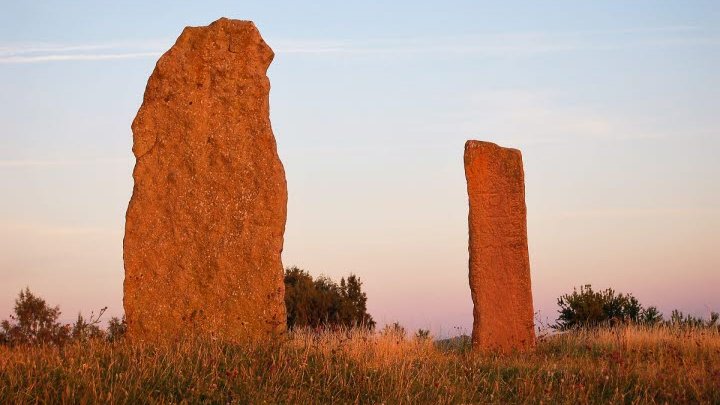Pagan and Christian runestones
The northern pagan stone depicts a horn and a man decorated with feathers tying a belt round his waist. It might represent the Norse god Thor, tying his famous belt of strength, “megingjörð”. While it lacks Thor’s best-known attribute, the hammer Mjölnir. this may have been on part of the stone that has broken off. It is likely that this stone was originally raised on this site while the Christian stone to the south, which bears a cross, was transported here from elsewhere. Placing the stones next to each other made them a symbol of the eleventh-century battle between paganism and Christianity.
Grave field
Around the runestones there was a large grave field, of which only five mounds now remain. A little further to the north there are a few more burial mounds and a stone circle. Local legend says that the two hills on which the runestones stand contain mass graves from a battle that took place nearby.



